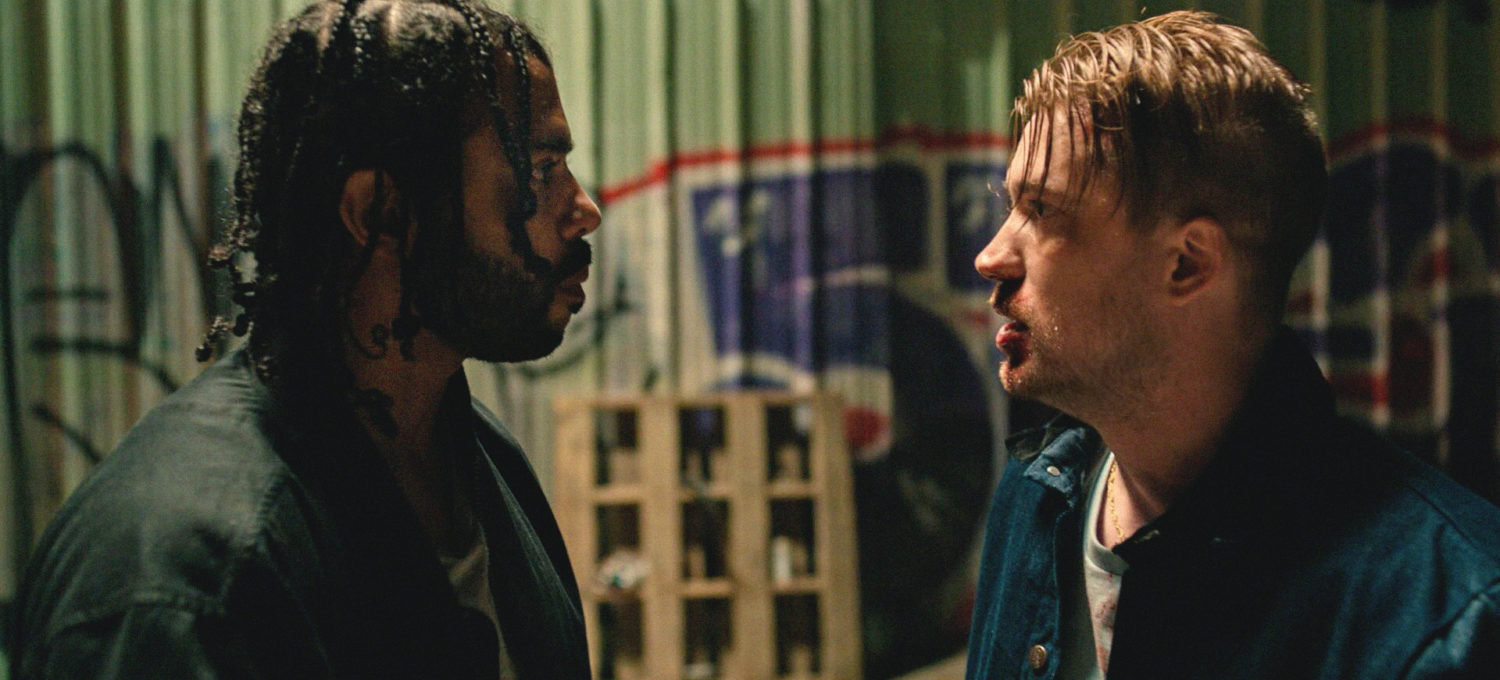With Blindspotting co-writers/stars Daveed Diggs and Rafael Casal, along with director Carlos López Estrada, have created the best film of 2018. It mixes head, heart, and humor in unparalleled fashion and left an impact on me after its screening here at SXSW that I haven’t felt since walking out of Moonlight.
In Blindspotting, Collin (Diggs) has three days remaining on a year-long probation after a questionable prison sentence. He works for a moving company alongside his longtime friend Miles (Casal), and, together, they witness first-hand the gentrification that is changing their beloved Oakland neighborhoods. Rushing home to meet his 11:00 pm curfew one night, Collin witness a murder that rocks his world and causes him to question more deeply his surroundings and his relationship with Miles.
Blindspotting is a love letter to Oakland from two of its rising stars, who happen to be lifelong best friends. In the post-screening Q and A, Diggs talked about having spent nine years working on this film. Casal talked about the changing times that make the film more relevant today than when they started: “When we started, we wanted to say this [injustice] IS happening. Now we want to show that it’s happening ALL THE TIME.”
Diggs, Casal, and Estrada may be tackling overwhelming themes—race, class, gentrification, police brutality, access to guns—but they never let it steal their joy. They manage to find humor in the horror, but not by sugar-coating injustice or tragedy. They meet it head on, speak plainly about what it is, and force us to confront the ways in which we ignore or contribute to these complex realities. Blindspotting is one of the funniest films you’ll see all year. The opening scene sets the tone, a deft mix of comedy, tension, and social commentary, that it miraculously sustains throughout its entire 95-minute run time. And its final act features a scene that will leave you breathless in both its suspense and lyricism.
Having lived in Oakland and the East Bay for a time, I can say that Blindspotting feels as true to a sense of place and the changes that it’s undergoing as any film I’ve seen in recent years. For viewers longing for more authentic expressions of and conversations around (in)justice and the -isms that define so much of American culture, Blindspotting is the place to start, because we can’t move forward without an honest discussion of where we are.
